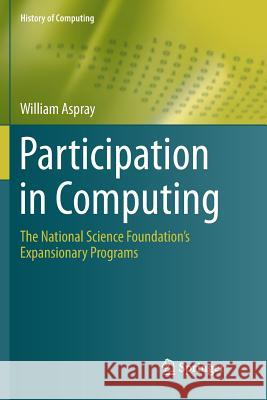Participation in Computing: The National Science Foundation's Expansionary Programs » książka
topmenu
Participation in Computing: The National Science Foundation's Expansionary Programs
ISBN-13: 9783319796857 / Angielski / Miękka / 2018 / 200 str.
Kategorie:
Kategorie BISAC:
Wydawca:
Springer
Seria wydawnicza:
Język:
Angielski
ISBN-13:
9783319796857
Rok wydania:
2018
Wydanie:
Softcover Repri
Ilość stron:
200
Waga:
0.30 kg
Wymiary:
23.39 x 15.6 x 1.14
Oprawa:
Miękka
Wolumenów:
01











